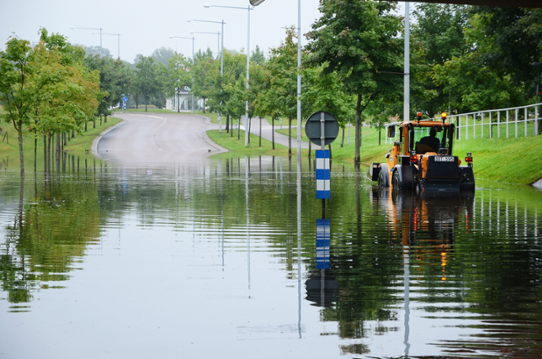
In order to provide useful climate information that meets the needs, the information will be co-produced in close collaboration with stakeholders from key sectors such as agriculture, finance and public administration. The useful and seamless climate information will span across time- and spatial scales that are relevant, and be adapted to multiple decision-making levels. The focus will be on the European climate with the possibility to look more broadly at areas such as disaster preparedness and other regions of the world that directly or indirectly affect Europe. The project started this year and will run until December 2026.
SMHI's work will focus on the development and testing of downscaling methods that Swedish climate services and other research projects will also be able to utilise. This involves event-driven downscaling of extreme weather events to the km scale. We will also be involved in user-interaction activities, contributing to the analysis of how climate information and knowledge can help organisations prepare for the physical risks of a changing climate, says Helena Martins project manager and science communicator.
The Barcelona Supercomputing Centre coordinates the project. In addition to SMHI, participants include CMCC (Centro Euro-Mediterrano sui Cambiamenti Climatici), ECMWF (European Centre for Medium-Range Weather Forecasts), University of Leeds, Max-Planck-Institut für Meteorologie, Met Office, University of Oxford, Raventós Codorníu, Republic Hydrometeorological Service of Serbia (RHMS) and University of Zagreb.
Survey open until 17 November
The research project consists of several different parts that use different methods to achieve the project objectives. These include performing calculations using climate models and working to improve them, case studies, user forums and developing systems for delivering climate information. One task led by the University of Leeds is to collect survey responses from organisations and sectors sensitive to weather and climate in several European countries. The survey is now available in Swedish and has already been distributed through various channels.
The results from this survey will help inform climate prediction research and operations in Europe. Better provision of climate information can help climate-sensitive organisations and sectors, and ultimately make Europe more resilient to climate variability and change, says Helena Martins.
The results of the survey will be presented in an article on smhi.se later this year.